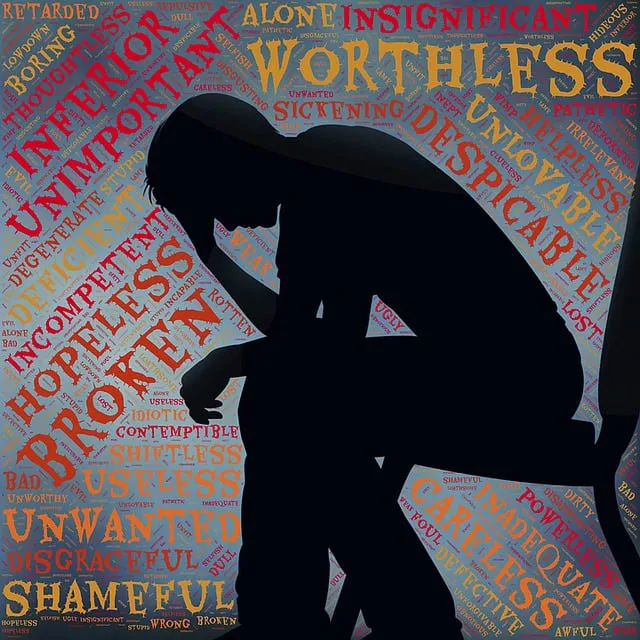Parker Kaiser Permanente behavioral health providers design inclusive community outreach programs tailored to local contexts and cultural sensitivities. They adapt services like mobile clinics and support groups for areas with limited mental health resources and provide targeted training in high-violence regions. Their holistic approach includes practices like Mental Wellness Journaling Exercises, fostering self-care routines and resilience. Programs utilize culturally sensitive initiatives, engaging workshops, and innovative evaluation methods centered around Mind Over Matter principles to improve mental well-being among diverse communities.
Community outreach programs are vital in addressing diverse needs, especially in mental health. This article explores effective strategies for implementation, focusing on the role of healthcare providers like Parker Kaiser Permanente. We’ll delve into understanding community needs, designing inclusive programs, and engaging through interactive workshops. Additionally, we’ll discuss measuring success by evaluating impact, highlighting best practices for behavioral health providers aiming to make a significant and lasting difference.
- Understanding Community Needs for Effective Outreach
- Parker Kaiser Permanente: Behavioral Health Provider Role
- Designing Inclusive Programs for Diverse Communities
- Engaging and Educating Through Interactive Workshops
- Measuring Success: Evaluating Outreach Program Impact
Understanding Community Needs for Effective Outreach

Understanding the unique needs and challenges of a community is paramount when designing effective outreach programs. Parker Kaiser Permanente behavioral health providers emphasize that tailoring interventions to local contexts ensures better engagement and outcomes. By actively listening to community members, identifying cultural sensitivities, and addressing specific barriers to care, these initiatives can foster trust and accessibility. For instance, areas with limited access to mental health resources may require mobile clinics or community-based support groups, while social skills training could be beneficial in regions grappling with youth violence.
Community outreach goes beyond providing services; it’s about building relationships and empowering individuals. Implementing burnout prevention strategies for healthcare providers is essential, especially when tackling complex issues like improving self-esteem and promoting resilience among vulnerable populations. Effective outreach programs recognize the importance of sustainable practices, ensuring that both community members and providers are supported over the long term.
Parker Kaiser Permanente: Behavioral Health Provider Role

Parker Kaiser Permanente stands as a beacon of hope and healing in the realm of behavioral health services. As one of the leading providers, they play a pivotal role in empowering communities to navigate complex emotional landscapes. Through their comprehensive approach, Parker Kaiser Permanente offers more than just treatment; they foster self-care routine development for better mental health. This involves guiding individuals through effective emotional healing processes, enabling them to lead fulfilling lives.
The organization’s commitment extends beyond clinical care, incorporating innovative practices like journaling exercises within their programs. This Mental Wellness Journaling Exercise Guidance not only promotes introspection but also serves as a powerful tool for self-discovery and resilience. By integrating such initiatives, Parker Kaiser Permanente ensures that individuals equipped with the necessary tools to thrive in today’s fast-paced world, where emotional well-being is paramount.
Designing Inclusive Programs for Diverse Communities

In designing community outreach programs, especially for diverse communities, it’s crucial to embrace inclusivity and tailor initiatives that cater to a wide range of needs. Parker Kaiser Permanente behavioral health providers recognize that each community has its unique dynamics, cultural nuances, and challenges related to mental wellness. Therefore, their approach involves creating programs that are not just accessible but also culturally sensitive and engaging. This might include incorporating self-awareness exercises and emotional intelligence training that resonate with different backgrounds, ensuring participation from within the communities themselves, and selecting venues that are safe, familiar, and comfortable for all.
By fostering an environment where everyone feels welcomed and valued, these programs can effectively promote mental wellness and encourage open conversations about emotional intelligence. The goal is to build strong connections between healthcare providers and community members, breaking down barriers that may exist due to language, cultural differences, or previous experiences. This inclusive design not only enhances the program’s effectiveness but also fosters a deeper understanding of the diverse communities’ needs, ultimately leading to better-supported and more successful initiatives.
Engaging and Educating Through Interactive Workshops

Community outreach programs, led by dedicated professionals like those at Parker Kaiser Permanente behavioral health providers, play a pivotal role in enhancing mental well-being through interactive workshops. These sessions are designed to engage and educate individuals from diverse backgrounds, fostering an environment where learning and personal growth thrive. By employing dynamic methodologies, the workshops not only cater to various learning styles but also encourage active participation. Topics such as self-esteem improvement and positive thinking gain prominence, providing attendees with practical tools to navigate life’s challenges more effectively.
Through interactive exercises and open discussions, participants are equipped with crisis intervention guidance, empowering them to recognize and support others in times of distress. The workshops create a safe space where individuals can openly explore their emotions, share experiences, and learn from one another. This holistic approach ensures that the knowledge gained translates into tangible improvements in mental health and overall quality of life.
Measuring Success: Evaluating Outreach Program Impact

Evaluating the impact of community outreach programs is a critical step in understanding their effectiveness and ensuring they meet their intended goals. At Parker Kaiser Permanente, behavioral health providers have been utilizing innovative communication strategies to reach underserved populations, focusing on the Mind Over Matter principles. This involves assessing various metrics such as program participation rates, feedback from community members, and changes in mental health outcomes over time.
By collecting and analyzing data through surveys, interviews, and medical records, the team can gauge the success of these initiatives. For instance, tracking improvements in participants’ well-being, increased access to behavioral health services, or enhanced community connections highlights the program’s impact. These evaluations not only help identify what works but also guide future adjustments, ensuring that community outreach programs remain relevant and beneficial for the target populations they serve.
Community outreach programs, as demonstrated by Parker Kaiser Permanente’s behavioral health provider initiatives, are pivotal in addressing diverse community needs. By understanding local requirements, designing inclusive activities, and utilizing interactive workshops, these programs can effectively engage and educate at-risk populations. Continuous evaluation of program impact ensures that efforts remain tailored to the evolving needs of the communities served, ultimately enhancing overall well-being. Parker Kaiser Permanente’s approach serves as a model for other behavioral health providers looking to make a tangible difference through community outreach.






